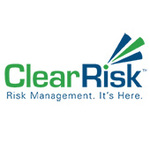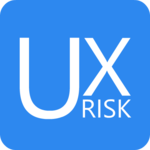Description

Horizon Portfolio Management

Hyperproof
Comprehensive Overview: Horizon Portfolio Management vs Hyperproof
Horizon Portfolio Management
a) Primary Functions and Target Markets
- Primary Functions: Horizon Portfolio Management is designed to offer comprehensive portfolio management solutions. The platform typically includes features such as investment management, risk management, performance analytics, trading platforms, and client reporting tools. It is used to streamline the portfolio management processes to offer real-time insights and automation.
- Target Markets: Horizon is targeted towards investment management firms, hedge funds, asset managers, and financial advisors seeking to optimize their portfolio management processes. These entities require sophisticated analytical tools to handle complex financial instruments and diversified investment portfolios.
b) Market Share and User Base
- Market Share: As a specialized portfolio management tool, Horizon Portfolio Management caters to niche markets in the financial services industry. It holds a moderate market share, preferred by institutions seeking robust and comprehensive management functionalities.
- User Base: The user base includes asset managers and financial groups looking for integrated solutions that enhance both operational efficiency and analytical capabilities.
c) Key Differentiating Factors
- Sophisticated Analytics: Horizon is known for its advanced analytics capabilities tailored to extensive portfolio management requirements.
- Automation and Integration: Offers high levels of automation and is designed for seamless integration with existing financial systems.
- Customizability: The platform is highly customizable, supporting various asset classes and specific client needs.
Hyperproof
a) Primary Functions and Target Markets
- Primary Functions: Hyperproof offers a cloud-based compliance operations platform designed to simplify and streamline compliance management processes. Features include compliance automation, task management, evidence collection, and risk assessments.
- Target Markets: Primarily targets organizations in regulated industries such as finance, healthcare, and technology, as well as enterprises seeking to enhance governance, risk, and compliance (GRC) operations.
b) Market Share and User Base
- Market Share: Hyperproof has a growing presence within the compliance management space, appealing particularly to mid-sized to large enterprises. It is increasingly recognized as a valuable tool for companies aiming to scale their compliance efforts efficiently.
- User Base: The user base primarily consists of compliance officers, IT security professionals, and risk managers who need efficient platforms for managing complex compliance requirements.
c) Key Differentiating Factors
- User-friendly Interface: Renowned for its intuitive and easy-to-use interface, making it accessible even for users with limited technical expertise.
- Collaborative Features: Facilitates cross-departmental collaboration by streamlining workflows and improving visibility across compliance tasks.
- Scalability: Offers scalable solutions suitable for organizations experiencing rapid growth and increasing compliance demands.
Lacima Analytics
a) Primary Functions and Target Markets
- Primary Functions: Lacima Analytics specializes in risk and valuation analytics for the energy and commodities markets. Features typically include advanced valuation models, risk analysis, simulation tools, and decision support systems.
- Target Markets: Focused on utility companies, commodity trading firms, and financial institutions dealing with energy markets. These markets require precise risk assessment and valuation capabilities to manage portfolios effectively.
b) Market Share and User Base
- Market Share: Lacima has established a solid reputation in the stress-testing and scenario analysis domain, particularly within the energy industry. It remains a prominent player among analysts and firms needing industry-specific analytical tools.
- User Base: Serves a diverse range of users including quantitative analysts, risk managers, and hedgers within energy and commodity markets seeking sophisticated risk and valuation insights.
c) Key Differentiating Factors
- Industry Specialization: Lacima’s analytics are tailored specifically for the energy and commodities sectors, setting it apart from more generic risk analysis tools.
- Deep Analytical Capabilities: Known for highly advanced quantitative models and scenario analysis flexibility that cater to the complexities of energy markets.
- Proven Expertise: Lacima provides a wealth of expertise and technical depth in both the theoretical and practical applications of financial risk management in the energy sector.
These products cater to diverse sectors and offer distinct features tailored to their respective markets. Depending on the specific needs concerning portfolio management, compliance operations, or risk analytics, customers will find varying value propositions and differentiating factors among these solutions.
Contact Info

Year founded :
Not Available
Not Available
Not Available
Not Available
Not Available

Year founded :
2018
+1 833-497-7663
Not Available
United States
http://www.linkedin.com/company/hyperproof
Feature Similarity Breakdown: Horizon Portfolio Management, Hyperproof
As of my knowledge cutoff in October 2023, I can provide a general breakdown of these products based on typical features of portfolio management, risk management, and compliance software. However, the specifics can vary based on the latest updates or versions of the software that I may not be aware of. Here's a general comparison:
a) Core Features in Common
-
Portfolio Management:
- All these platforms likely offer capabilities for managing different financial portfolios, including asset allocation, investment tracking, and performance evaluation.
-
Data Integration:
- They probably provide features for integrating with various financial data sources to import and process data.
-
Risk Management:
- Tools for assessing and managing financial risk are common across these platforms, providing users with risk analytics and stress testing capabilities.
-
Reporting:
- Advanced reporting features for generating detailed financial reports for analysis and compliance purposes.
b) User Interface Comparison
-
Horizon Portfolio Management:
- Typically presents a user-friendly interface focusing on intuitive navigation for portfolio tracking, analytics, and visual dashboard elements for performance metrics.
-
Hyperproof:
- Known for its clean, modern interface with a strong emphasis on compliance and audit processes. It likely emphasizes ease of use for tracking compliance obligations and workflows.
-
Lacima Analytics:
- Possibly offers a more data-intensive user interface, catering to users focusing on detailed financial risk analytics. It may have advanced visualization tools for scenario analysis and risk metrics.
The usability and interface design can vary significantly based on the intended end-user (e.g., financial analysts vs. compliance officers) and the level of complexity involved in handling data.
c) Unique Features
-
Horizon Portfolio Management:
- May offer unique investment strategy tools and custom asset allocation features tailored specifically for institutional investors, including real-time analytics and strategy modeling.
-
Hyperproof:
- Known for its strong focus on compliance, it might have unique features such as automated evidence collection and comprehensive audit trails that are particularly beneficial for organizations with strict regulatory requirements.
-
Lacima Analytics:
- Often specializes in complex risk analytics with unique capabilities for pricing, market, and credit risk modeling, particularly beneficial for energy companies and businesses dealing with derivatives.
In choosing between these platforms, potential users should consider their specific needs, whether it's high-level portfolio management, in-depth risk analytics, or comprehensive compliance management, and evaluate each product’s current offerings through demos and trials.
Features

Risk Management
Client Management
Financial Planning
Investment Tracking

Audit Management
Compliance Management
Risk Management
Team Collaboration
Best Fit Use Cases: Horizon Portfolio Management, Hyperproof
Certainly! Each of these software solutions serves different purposes and is tailored to specific business needs. Here's an overview of the best fit use cases for Horizon Portfolio Management, Hyperproof, and Lacima Analytics:
a) Horizon Portfolio Management
Best Fit Use Cases:
- Financial Institutions: Horizon Portfolio Management is ideally suited for investment firms, banks, and other financial institutions that need to manage a wide range of investment portfolios. Its robust capabilities in performance measurement, risk management, and reporting make it a strong choice for these entities.
- Asset Management Companies: It is also well-suited for asset management firms that handle diverse types of assets, including equities, fixed income, and alternative investments.
- Enterprise-Level Projects: Large organizations with complex project portfolios can benefit from Horizon's ability to track and optimize project investments and align them with strategic objectives.
Industry Vertical & Company Size:
- Primarily finance and investment industries, along with large corporations across various sectors.
- Best for medium to large-scale enterprises with a dedicated focus on portfolio management and investment analysis.
b) Hyperproof
Best Fit Use Cases:
- Compliance-Focused Organizations: Hyperproof is ideal for companies that need to manage and streamline their compliance processes, including SOC, ISO, GDPR, and other regulatory frameworks.
- Risk Management Teams: Organizations with a heavy emphasis on operational risk management can effectively use Hyperproof to identify, manage, and mitigate risks across their operations.
- IT and Data Security: Companies with a strong focus on information security, including SaaS companies, can leverage Hyperproof to ensure their processes adhere to compliance mandates.
Industry Vertical & Company Size:
- Highly relevant for technology companies, healthcare, finance, and any industry heavily regulated with compliance requirements.
- Suitable for small to medium-sized companies to large enterprises that need a comprehensive compliance solution.
c) Lacima Analytics
Best Fit Use Cases:
- Energy Sector Firms: Lacima Analytics is specifically tailored for companies operating within the energy and utilities industries, where complex derivatives, risk assessments, and analytics are crucial.
- Risk Analysis and Trading: Companies that are involved in trading energy commodities will find Lacima's risk analysis capabilities highly beneficial.
- Utilities and Grid Management: Firms focusing on grid management and optimization can leverage Lacima's advanced modeling and analytical tools.
Industry Vertical & Company Size:
- Primarily serves the energy and utilities sectors.
- Suitable for any size organization within these industries, from medium-sized firms to large enterprises, particularly those with sophisticated trading or risk management needs.
d) Catering to Different Industry Verticals and Company Sizes
- Horizon Portfolio Management primarily caters to financial institutions and large corporations that require extensive investment and asset management capabilities. It’s best suited for industries like finance and investment but can also serve enterprise-level project portfolios across sectors.
- Hyperproof is versatile across various industries with strict compliance needs, including technology, healthcare, and finance. It's scalable and fits well with companies of all sizes that prioritize compliance and risk management.
- Lacima Analytics provides specialized solutions for the energy and utilities industries, focusing on risk management, trading, and analytics. It’s uniquely positioned for companies in these sectors regardless of size but is particularly advantageous for those handling complex energy markets.
These tools are designed to address specific business requirements within their respective domains, making them the preferred choices for companies with needs aligned to their unique capabilities.
Pricing

Pricing Not Available

Pricing Not Available
Metrics History
Metrics History
Comparing teamSize across companies
Conclusion & Final Verdict: Horizon Portfolio Management vs Hyperproof
When evaluating Horizon Portfolio Management, Hyperproof, and Lacima Analytics, it's important to consider the unique strengths and weaknesses of each product to determine which offers the best overall value.
a) Best Overall Value
Horizon Portfolio Management offers robust portfolio management capabilities tailored for financial services, making it an excellent choice for organizations prioritizing investment strategy, risk management, and financial analytics. It likely provides the best value for businesses focused on comprehensive investment and risk solutions.
Hyperproof excels as an adaptable compliance and risk management platform, offering a good value to organizations that must manage governance, risk, and compliance (GRC) efficiently across various frameworks. It's particularly valuable for businesses that prioritize regulatory compliance and data security.
Lacima Analytics provides specialized analytics for risk management and derivative pricing primarily for energy and commodity markets. It would present the best value for companies deeply involved in these sectors, where specific analytics and modeling tools can drive decision-making.
b) Pros and Cons
Horizon Portfolio Management
- Pros:
- Excellent for holistic portfolio management and financial risk assessment.
- Strong analytical tools for investment decision-making.
- Highly customizable to fit different financial environments.
- Cons:
- Can be complex for users who do not need full-spectrum financial services.
- Possibly higher costs due to its comprehensive features.
Hyperproof
- Pros:
- Highly flexible and user-friendly for GRC requirements.
- Integrations with various tools enhance its utility for compliance management.
- Regular updates to adapt to evolving regulatory standards.
- Cons:
- May be overkill for organizations with minimal compliance needs.
- Limited to GRC functions, lacking in investment or financial analytics.
Lacima Analytics
- Pros:
- Offers advanced tools specifically for energy and commodity risk management.
- Strong focus on accurate pricing and optimization in volatile markets.
- Cons:
- Very specialized, which may not suit companies outside of energy and commodities.
- Can be niche and require expertise in derivatives and financial modeling.
c) Recommendations
For users deciding between these platforms:
- If your primary need is sophisticated portfolio management with a broad financial toolset, Horizon Portfolio Management is likely the best fit.
- If your focus is on compliance, risk management, and adaptability across various regulatory environments, Hyperproof would align with your needs.
- If your business revolves around energy or commodity sectors where specific analytics and derivative tools are necessary, Lacima Analytics is highly suited to those needs.
Ultimately, choose based on the primary operational needs of your business context, budget considerations, and the strategic goals you aim to achieve with these software solutions. Trial periods, demos, and consultations with vendor representatives can also provide additional insights to inform your decision.
Add to compare
Add similar companies



